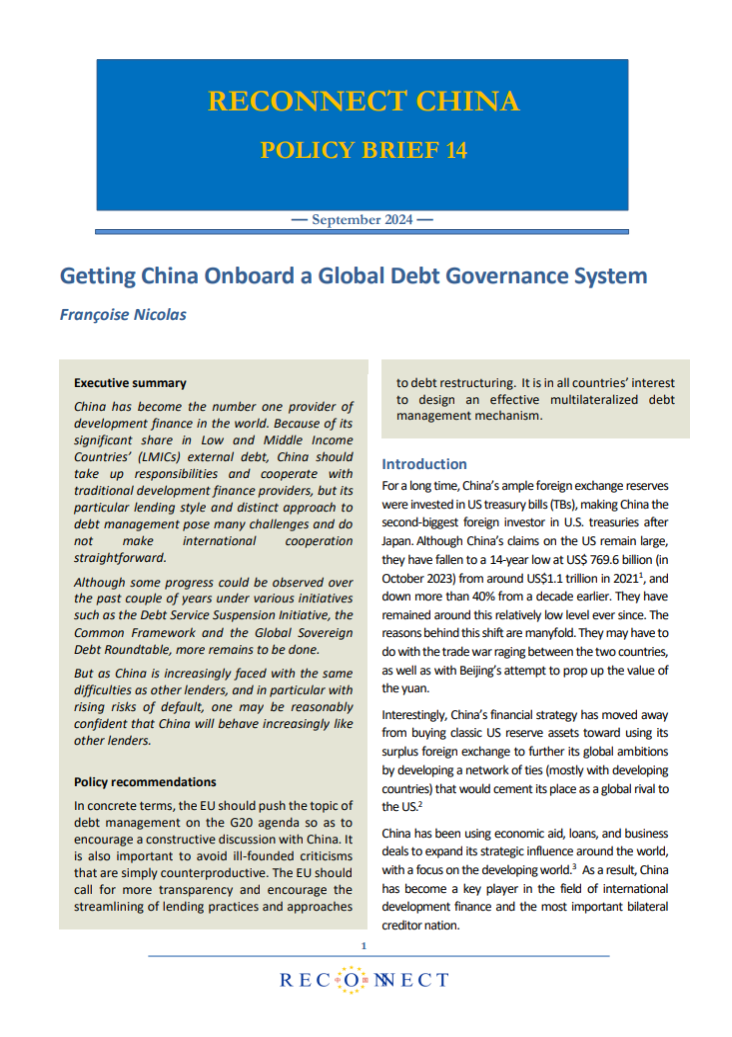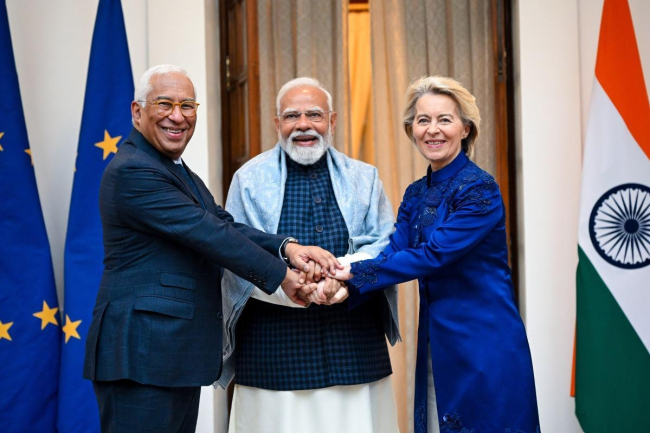Getting China Onboard a Global Debt Governance System

China has become the number one provider of development finance in the world. Because of its significant share in Low and Middle Income Countries’ (LMICs) external debt, China should take up responsibilities and cooperate with traditional development finance providers, but its particular lending style and distinct approach to debt management pose many challenges and do not make international cooperation straightforward.
Although some progress could be observed over the past couple of years under various initiatives such as the Debt Service Suspension Initiative, the Common Framework and the Global Sovereign Debt Roundtable, more remains to be done. But as China is increasingly faced with the same difficulties as other lenders, and in particular with rising risks of default, one may be reasonably confident that China will behave increasingly like other lenders.
In concrete terms, the EU should push the topic of debt management on the G20 agenda so as to encourage a constructive discussion with China. It is also important to avoid ill-founded criticisms that are simply counterproductive. The EU should call for more transparency and encourage the streamlining of lending practices and approaches to debt restructuring. It is in all countries’ interest to design an effective multilateralized debt management mechanism.
ReConnect China is a research project dedicated to strengthening independent knowledge on China in Europe. Funded as part of the European Commission’s Horizon Europe program, the four-year project brings together 15 institutions and 66 researchers across 12 European countries. Ifri will contribute policy briefs such as this one throughout the lifespan of the project, ranging from science and technology to China’s economy to foreign policy and China’s place in international affairs.

Available in:
Themes and regions
Share
Download the full analysis
This page contains only a summary of our work. If you would like to have access to all the information from our research on the subject, you can download the full version in PDF format.
Getting China Onboard a Global Debt Governance System
Related centers and programs
Discover our other research centers and programsFind out more
Discover all our analysesEuropean Union-India: Lasting Rapprochement or Partnership of Convenience?
The partnership between the European Union (EU) and India has long been limited to economic exchanges. Its political dimension has gradually developed, culminating in its elevation to the status of a “strategic partnership” in 2004. However, the failure of negotiations for a free-trade agreement in 2013 slowed this momentum. Since the early 2020s, in an uncertain geopolitical context, bilateral rapprochement has gained new momentum.
Japan’s Takaichi Landslide: A New Face of Power
Prime Minister Sanae Takaichi has turned her exceptional popularity into a historic political victory. The snap elections of February 8 delivered an overwhelming majority for the Liberal Democratic Party (LDP), driven by strong support from young voters, drawn to her iconoclastic and dynamic image, and from conservative voters reassured by her vision of national assertiveness. This popularity lays the foundation for an ambitious strategy on both the domestic and international fronts.
The U.S. Policy Toward Taiwan Beyond Donald Trump: Mapping the American Stakeholders of U.S.-Taiwan Relations
Donald Trump’s return to the White House reintroduced acute uncertainty into the security commitment of the United States (U.S.) to Taiwan. Unlike President Joe Biden, who repeatedly stated the determination to defend Taiwan, President Trump refrains from commenting on the hypothetical U.S. response in the context of a cross-Strait crisis.

China’s Strategy Toward Pacific Island countries: Countering Taiwan and Western Influence
Over the past decade, China has deployed a diplomatic strategy toward the Pacific Island Countries (PICs). This strategy pursues two main objectives: countering Taiwan's diplomatic influence in the region and countering the influence of liberal democracies in what Beijing refers to as the "Global South."











